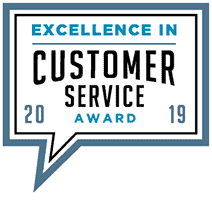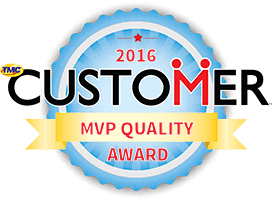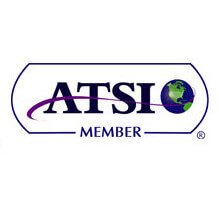Every business owner wants to see their business grow and succeed, but with this growth comes more customer calls, questions, and (possibly) complaints. You may have heard that a great way to better serve your customers needs is to hire a professional call center. However, you may have also heard the term contact center and wonder if they are synonymous or if there is a difference between the two types of businesses.
There are numerous differences between call centers and contact centers. Although call centers came first, contact centers later appeared with more services available due to the expansion of digital communication and services.
Choosing between the two ultimately depends on the needs of your business – and the needs of your customers and how they like to communicate with you.
Call centers have been around for years – decades even – and are very familiar in society today. Have you ever called a customer service line and it was answered by a friendly individual ready to meet your needs? You more than likely aren’t actually calling the company – you are contacting a call center.
Call centers are basically companies that use professional call agents to handle both the inbound and outbound phone calls on behalf of their clients. Call centers are advantageous to businesses that simply don’t have the manpower to handle these calls, which can range from customer service complaints, technical support, product questions, or even placing product orders.
Call centers have a very simplistic way of operating – they simply use phone services and possibly computers to handle customer calls and organize the services that are being met on behalf of the client. A call center’s main goal is to reduce the amount of calls a business receives so that customers’ needs are met, and the business can focus on the day-to-day tasks.
Call centers are a great way to ensure your customers receive professional, high-quality customer service. However, call centers only offer phone services. If you need more than someone simply answering a phone call, a contact center will give you more options.
Like a call center, a contact center also handles a client’s inbound and outbound calls so that customers receive the highest level of customer service. However, a main difference is that contact centers don’t use telephones. Instead, this same work is completed over digital channels like Voice over Internet Protocol (voice over IP) or cloud-based services.
This means contact centers can handle other forms of communication for their clients through digital channels, such as text, email, social media, voice over IP, live chat, video conferencing, chatbots, and more.
These platforms are integrated seamlessly to create an omnichannel customer experience. This means customers can communicate with the contact center using a variety of platforms that work as one seamless service.
Choosing between a call center versus a contact center really depends on the communication needs of your customers. Does your company only receive phone calls and email, but not social media or web-based communication? If so, a call center may meet all of your customers’ needs.
However, if you use digital platforms to run your business and customers’ experiences, a contact center could be advantageous. In addition, using digital platforms like email, text messaging, and chat bots may reduce costs because they free up the agents’ time so they can help more customers.
A traditional phone call used by a call center may take longer because it is a form of verbal communication, while contact centers use written communication to handle customer communication. In the end, contact centers and call centers have numerous differences, as noted in the list below.
Call centers have only one channel of communication – the telephone – while contact centers have a variety of them. For example, contact centers may use any of the following to communicate with your customers quickly and efficiently: phone calls, email, SMS/text messaging, social media, live or video chats, website forums, web-based calls, or different apps.
When customers have a wider variety of communication methods to get in touch with a company, as with a contact center, they may be more satisfied and loyal to the business. It really depends on the personal preferences of your customers, and this can be identified using customer data analytics.
How do your customers get in touch with you? This data can be key to answering the question of whether you should use a call center versus a contact center. Call centers only use phone call analytics to learn more about their customers and service quality, while contact centers do this while also gathering more information from messages and social media accounts.
If your customers interact with you via social media, for example, a contact center may be more beneficial. If you rarely use social media to communicate, then that data may not be necessary.
Call centers use IVR technologies for automated responses, while contact centers use CSS capabilities that go beyond the IVR approach and include chatbots.
These are both services that use automated systems to interact with callers, gather information and data, and route the calls to the appropriate person based on the customers’ needs. CSS just goes a bit beyond due to the digital capabilities of communicating with customers.
The skills of a call center agent versus a contact center agent vary due to the technology used by each. A call center agent mainly needs to have basic customer service and phone etiquette skills, while a contact center agent also needs to be fast at typing, have good grammar, and have an understanding of social media etiquette.
The technology and equipment used by a call center versus a contact center is probably one of the biggest differences between the two. While call center and contact center technologies can overlap, contact centers require additional services to help manage their omnichannel natures.
Remember that an omnichannel call center will use numerous platforms that are combined seamlessly to act as one – phone calls, email, SMS/text messaging, social media, live or video chats, website forums, web-based calls, or different apps. For example, if a customer starts communication with a contact center via the telephone, then continues with a follow-up email, and finally ends with a video chat, an omnichannel call center will ensure that each form of communication is seamlessly connected as one. Call centers simply use the telephone as a primary form of contact.
Although call centers and contact centers have technological differences, they also have similarities. For example, they both provide inbound and outbound services and their agents require similar skills (and sometimes similar technology).
Both agents need to have stellar communication skills, patience when handling customer concerns, and empathy towards your customers’ complaints and needs. Contact center agents just need to have an understanding of digital technology, which call center agents simply need to communicate well over the phone.
In the end, choosing to use a contact center or a call center really depends on how your business communicates with customers. Many companies are taking an omnichannel approach so that customers can reach them at their fingertips.
If this is the case, a contact center may work best for you because they can reach your customer base on a variety of platforms. If you only have a phone line in which customers get in touch with you, a call center will suffice.
While call centers provide excellent customer care, contact centers have way more services and can be more beneficial for businesses. Many contact centers include the most advantageous elements of a call center while also creating an omnichannel customer experience.
Ansafone Contact Centers is an award-winning BPO provider with 50 years of world-class customer experience and brand care. We are a national call center with omnichannel services, fully equipped to help you with your business and with any special circumstances.
Please request a quote or call 800-510-0514 to learn more about how you can benefit from outsourcing a call center and how we can improve your business. We’re happy to offer insight into what your customers seek from your company’s language offerings and tailored customer solutions.











